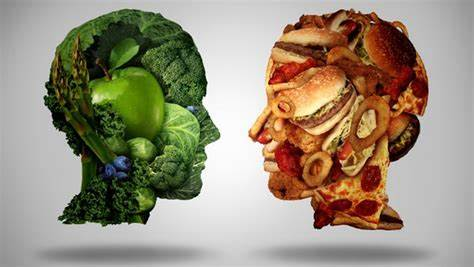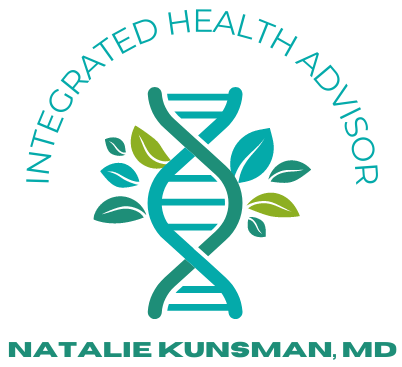If anyone wants to know right now whether diet contributes to mental health the answer is an emphatic YES! When I treat children and adults with depression, especially for the first encounter, I run an assessment on the very foundational piece of lifestyle, which is diet. To understand how diet impacts our mood, cognition, and memory we must understand a little bit about food chemistry. Perhaps the severity of the depression still may require therapies or medications, but diet can impact the disorder positively or negatively. We will delve into the foods that create a depressive milieu in the brain. Bar none, one of the most detrimental food chemicals to our brains is sugar! Of course, we realize that sugar affects us in a drug-like manner in which we crave more as we eat it. It clearly affects the reward centers. It drives us to lose control, aggravates over-eating, and slows our cognition. There are inflammatory changes as noted in the diabetic brain as well as volume loss and shrinkage. This microdamage to the blood flow to the brain is mostly to blame leading to the slower speed of transmission, learning difficulty, and lower scores on cognitive testing. Brain-derived neurotropic factor (BDNF) is essential for the plasticity of the brain with recovery and repair of neurons. This is markedly reduced in a brain fed high amounts of sugar. Depression is a mood disorder which is the focus of today’s discussion. The Whitehall study that was conducted with over 23,000 patients found that high sugar diets had 23% more likely to be diagnosed with a mental disorder than those without high sugar eating habits. There is an interplay between sugar and dopamine as well as oxytocin (the “love” or “bonding” hormone). Take any measure needed to get this substance out of your diet since you have only been given one brain, and you need to protect it.

Processed foods are another culprit that highjack any real nutritional content, fill our bellies, but do not feed our brains. In fact, Britain ran a study of 3000+ patients to prove that those patients with a highly processed food intake had much higher rates of depression. The rendered down food-phonies such as fried, nitrate-rich (hot dogs and ham), packaged, deli-processed, and color additive provisions rob our gut bacteria and our cells of nutrients. There are low amounts and vitamins in these foods, and they are high in neuroexcitotoxins. The non-food chemicals used to preserve these items on our grocery store shelves leads to high inflammation and brains on fire. There is hyperactivity, agitation, and mood disorders. Aspartame is very volatile in our systems because it cannot adequately be broken down and retains itself in our cells indefinitely. This has also been studied to aggravate and contribute to anxiety and depression. The high level of non-food chemicals in packaged and snack foods leads to an unhealthy gut microbiome. Our gut bacteria contribute to our gut-brain axis connectivity and help to provide the substrates for our neurotransmitters. These neurotransmitters are what connect and communicate in out brain synapses to let us know we are happy and satisfied. Processed foods are also laden with very addictive tastes that keep us craving more. For the short-term fix of feeding our reward centers we contribute to the detriment of our mood and mental health in the long run.
Trans fatty acids have infiltrated our American diets exponentially for the past 100 years. We now understand the impact of these manufactured fats on our cardiovascular system so much so that the FDA banned them in restaurant and store foods in 2018. High amounts of trans-fatty acids reduce serotonin production in the brain. Serotonin is needed to keep us happy and content. Low serotonin equals depression. There are also processed oils such as safflower, corn, and canola oils that are high in omega-6 oils. Too high of an omega-6 ratio leads to high inflammation in the diet. These oils in turn will worsen depression. The better oils to eat include omega-3 oils which are highest in fish. Stay away from deep fried foods, pastries, fast food, margarine, and shortening.

Alcohol is a known depressant. This has never been disputed. Alcohol can bring down our motor function, cognition, and our mood. If you are prone to depression or already have it, no good will come of alcohol. I have not met too many alcoholics who are happy, energetic, and dynamic. Alcohol dependency is a depressing existence, and a good rehabilitation strategy will encourage abstinence with a whole foods lifestyle. In a secondary way, alcohol can impair sleep. Sleep is essential to brain health in that is will wash away our cellular debris (amyloid plaques) at nighttime to refresh the cells and synapses the following day. Take any measure to remove your alcohol dependency and watch the fog lift.
If the vegetable and food intake is high in genetically modified plant substances (GMO’s) there is the potential for neurotransmitter disruptors that will sabotage our mood. Our wheat has been modified to have a remarkably high gluten percentage which is just simply too much for us to process. Our guts have not been genetically engineered fast enough to keep up with the genetic modification of our food. I think worse than the modification comes the farming principles using pesticides, herbicides, and fertilizers that leech into our foods. These organic and inorganic chemicals completely disrupt our DNA and lower our acetylcholinesterase. When we block acetylcholinesterase, we block many functions at our brain synapses. We may also build up toxic levels of acetylcholine. This affects mood and depression. Acetylcholinesterase (which breaks down acetylcholine) is also a key neurotransmitter in Alzheimer’s disease and is the target of some medications to help treat this disease. Any harmful chemical sprayed or added in our soils to grow our food should be banned.
We now know what to avoid which is contributing to our depression, but what in the world is left to eat that can help? For my “carb junkie” patients who have not made the connection between their high-calorie low-nutrition lifestyle and its contribution to their mental health, my first tutorial revolves around protein. Good protein is the key that unlocks the door to building our neurotransmitters. Our neurotransmitters are chemical messengers that “talk” via our synapses of our brain cells. The three major ones most understood that modulate our mood include serotonin, dopamine, and norepinephrine. There are several others that play a role including glutamate, GABA, and acetylcholine. The amino acid backbone of serotonin requires l-tryptophan. The backbone of dopamine and norepinephrine requires tyrosine. L-tryptophan comes from the chicken, turkey eggs, pumpkin seeds, tuna, and beans to name a few. If the diet is deficient in these foods, there is no way for the gut plexus to help manufacture serotonin. Keep in mind that there are disorders where the synapse cannot process the serotonin well, but a deficiency in serotonin can easily be remedied by supplying the body with some whole foods high in the substance. Tyrosine is also highest in beef, chicken, turkey, and fish. For the vegan patient struggling to get in enough tyrosine, beets, beans, chickpeas, lentils, and avocados should be a staple in the eating habits.

For all those poor nutritional foods that a patient is consuming there needs to be the healthful option to replace them. In the case of the processed foods comes the discussion about whole foods. This literally means that we can digest a food that is whole, unadulterated, unprocessed, and undisturbed by frying. Whole foods carry high amounts of vitamins and cofactors needed to make and process our neurotransmitters. With whole foods comes the necessary b-12 and folic acid, especially in our proteins mentioned above and leafy greens, nuts, and beans. Zinc influences depression and sometimes help antidepressants work better. This coupled with selenium can help depression and anxiety. Both minerals are also found in nuts, seafood, and organ meats. Optimizing omega three oils (DHA and EPA) from well-sourced fish can enhance brain function and build myelin sheathing, which protect nerve conduction in the brain. Walnuts and flaxseed have some amounts of DHA and EPA. If the body starts accumulating free radical damage from cellular stress, an antioxidant tactic of eating many berries and vegetables may help against depression and anxiety. Do not forget that feeding our gut bacteria is essentially feeding our bodies. If we are trying to overcome a previous diet that destroyed gut health, we may need to replenish our losses with multi-species probiotics. I have also watched the wonders of vitamin D replacement making tremendous improvements in mental health. Those foods, in addition to the sun, that have higher amounts of vitamin D include fish, beef, and eggs. If you are watching them in the essential nutrients, you see that are found in whole foods with a mixture of plant and animal options.
What if there are not enough hours in the day to eat these foods? What if there are allergies or intolerances to certain foods? This is where the supplemental approach may augment or supplement a diet, but it is never a replacement for a good nutritional program. If food chemistry is confusing a well-educated nutritionist may be worth the investment to learn whole food principles to take your mental health into your own hands. Understand that there are depressive patients that have profound pathology and need professional help and medication. A solid diet will help this plan. I implore that it is mandatory for the anti-depressants to have a fighting chance to work. There are many human and mice studies underway to study dietary intricacies and how food plays the essential role in feeding our brains and creating harmony and resonance throughout the synapses daily. Think back to when your depression started, and did it include any change in your shopping or cooking practices? The good news is that depression is modifiable by dietary strategies and well-within your power to help yourself. If your condition is severe, you cannot stop medications unless you consult your mental health expert.
Join hundreds of my patients and work with me, your functional physician, to fix your mental health.




